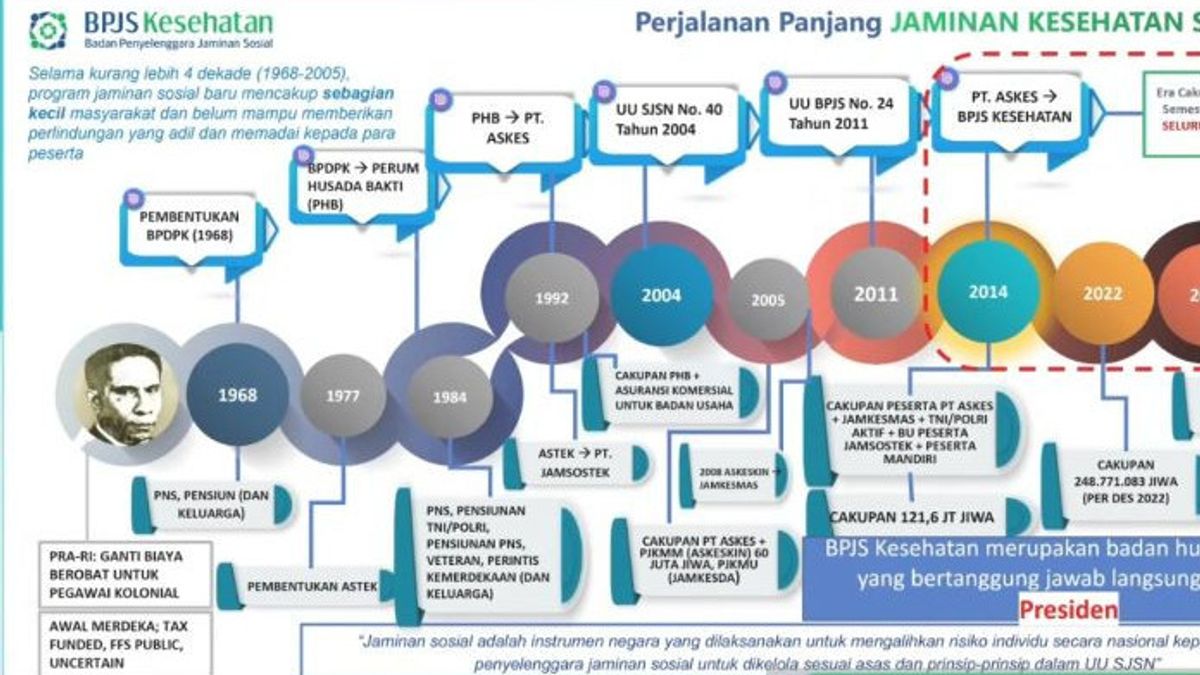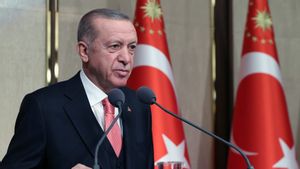JAKARTA - BPJS Watch Coordinator Timboel Siregar stated that Article 13 paragraph (2) letter a of the Health Bill (RUU) will revise the responsibility of BPJS Kesehatan, which was originally directly to the President, to the Ministry of Health.
"In the BPJS Law Article 7 paragraph (2) of the BPJS Law mandates that BPJS be directly responsible to the President, it will be revised in the Health Bill, provided that BPJS is responsible to the President through the Minister. BPJS Health will be directly responsible to the President through the Minister of Health," said Timboel Siregar, confirmed by Antara in Jakarta, Sunday.
He is of the view that the Health Bill which is currently being discussed by Commission IX of the DPR RI together with a number of relevant stakeholeders has the potential to reduce BPJS' authority, namely the board of directors and supervisory board of BPJS.
The National Health Insurance Program (JKN), which is the constitutional mandate, said Timboel, cannot be implemented alone by BPJS Kesehatan, but needs support from other ministries/agencies.
"The presence of Presidential Instruction No. 1 of 2022 concerning Optimization of the Implementation of the JKN Program which involves 30 ministries/agencies and local governments positioning BPJS directly responsible to the President, so that the implementation of the JKN program has a check and balance system between BPJS and ministries/agencies. If BPJS is under the Minister of Health, the JKN program will be threatened and will not run well, which will have a direct impact on the community," he said.
Timboel said the provisions of the Health Bill mandated the Minister of Health to intervene in BPJS' work sourced from the community's mutual cooperation contributions.
"The task of the Ministry of Health, which should be financed by the State Budget (APBN), can be transferred to financing from public contributions," he said.
"Health programs that are financing in the state budget, such as the Healthy Life Community Movement (Germas), could be left to the JKN Program to finance it," said Timboel.
"If this happens, the JKN program will have the potential to experience a deficit again because the use of public contributions collected at BPJS Health is used for the benefit of the Ministry of Health. If the deficit then it will have a direct impact on reducing services to the community," he said.
President Director of BPJS Kesehatan Ghufron Mukti in a Public Discussion entitled Urgency of the Health Bill, which was held by the PKB DPP last week, said that BPJS Kesehatan contribution revenues are currently increasing by more than Rp. 100 trillion in line with public awareness of the importance of JKN.
"The total BPJS Health funds used to be IDR 40.7 trillion, now IDR 144 trillion. This has exceeded the Ministry of Health's budget," he said.
Ghufron said that the current Health Bill has the potential to restore BPJS Health institutions in the 1968 era, with the presence of a Health Maintenance Fund Administration Agency (BPDPK) that was once under the authority of the Ministry of Health.
"In essence, BPJS Kesehatan evolved from PT Askes to BPJS Kesehatan at this time. If we return in 1968, the resignation is extraordinary, and the process until independent with the participant's money requires a lot of sacrifice, don't let decades of work be a setback," he said.
The English, Chinese, Japanese, Arabic, and French versions are automatically generated by the AI. So there may still be inaccuracies in translating, please always see Indonesian as our main language. (system supported by DigitalSiber.id)













